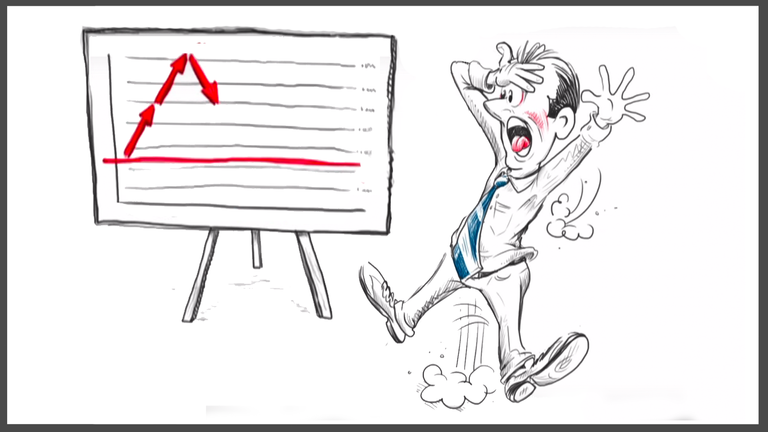
Let’s say that next week you make $1,000 in
the stock market. The following week, you
lose $1,000. Of course, making money is
better than losing money. But, is the joy of
winning greater than the pain of losing?
For most people, it is not – losing feels
worse. Hating losing more than loving
winning could lead to bad investment
decisions.
The way our brain views losses is skewed.
Research suggests our minds experience
actual pain when losing money. Studies also
have shown that the pain we feel from losing
is greater than the pleasure we feel from
winning an equal amount.
This is called loss aversion. In investing it
causes people to over-exaggerate the risks
of a particular investment and decide to play
it safe. So, even if the chances of making
$1,000 are better than losing $1,000 on an
investment, most investors will avoid the
opportunity altogether. Most people
exaggerate the smaller possibility of a worstcase
scenario and as a result do not participate in what is, statistically, a good
opportunity.
An experiment involving $50 and a coin toss
demonstrated this fact. Scientists handed
subjects a $50 bill and gave them two
options: Keep (or “win”) $30, or toss a coin to
win or lose $50. Forty-three percent chose to
gamble, the rest chose to “win” (or keep)
$30.
The experiment continued and participants
were handed another $50 and given two
options: “Lose” $20, or toss a coin to win or
lose $50. The outcomes of the two different
experiments were identical – “winning” $30
of the original $50, or “losing” $20. However,
when the option was framed as “losing” $20
rather than “winning” $30, 61 percent of the
group chose to gamble.
The desire to avoid a loss rather than solidify
a gain caused participants to make a poor
choice.
What to do about it
The Overnight Test is a simple way to avoid making a bad decision because of loss aversion.
Say you invested in a stock that declined in value and now are faced with the decision of
whether to sell at a loss, or keep holding it. It’s painful admitting you were wrong, of course.
But imagine you went to sleep and overnight the stock was replaced with cash. In the morning
when the markets open, would you now use that cash to buy the stock at the current market
price or invest it somewhere else?
If you wouldn’t buy the stock even at this lower price, you should probably sell.
All poat good
thanks @badol1994